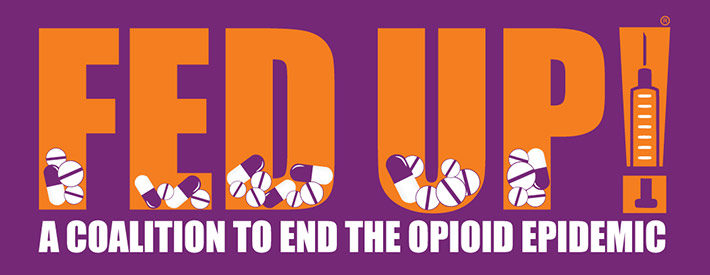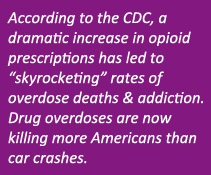FED UP! will presenting the Opioid Bill of Rights at this years Rx and Illicit Drug Summit in Atlanta, GA Booth #112. Please stop by and sign the Opioid Bill of Rights!

In recognition of the ongoing devastation caused by the opioid crisis, it is critical that the rights of individuals impacted by this crisis are secured and safeguarded. Every person struggling with opioid use disorder deserves access to comprehensive and compassionate care. This Bill of Rights strives to ensure that those affected by the opioid crisis receive equitable access to the support and services necessary to overcome addiction and rebuild their lives, regardless of their background, identity, or circumstances.
Right to Substance Use Disorder Treatment Every person grappling with opioid use disorder shall have the right to prompt access to evidence-based treatment options, encompassing medication-assisted treatment (MAT), counseling, and support services. Treatment programs must be accessible, affordable, and tailored to individual needs, regardless of socioeconomic status or insurance coverage.
Right to Harm Reduction Services Individuals at risk of opioid overdose shall have the right to access harm reduction services, including supervised consumption sites, needle exchange programs, education on safer drug use practices, and testing technologies to evaluate contaminated substances. Communities shall endorse harm reduction initiatives prioritizing the health, safety, well-being, and autonomy of individuals who use opioids, devoid of judgment or marginalization.
Right to Access Naloxone Every individual at risk of opioid overdose, including those with a history of opioid use disorder and their loved ones, shall have the unequivocal right to readily obtain and afford naloxone, a crucial medication proven to reverse the effects of opioid overdose.
Right to Seek Help Without Fear of Prosecution Individuals seeking assistance for opioid overdose or addiction shall have the right to seek emergency aid or treatment without fear of prosecution for nonviolent, drug-related crimes under Good Samaritan laws and similar legal protections. Legal barriers hindering treatment and emergency aid access shall be dismantled, ensuring unimpeded access to care without fear of legal repercussions. Comprehensive reform of existing legal frameworks and systemic injustices must be pursued to prioritize recovery and rehabilitation over criminalization and punishment.
Right to Community Support and Resources Communities affected by the opioid crisis shall have access to resources and support services addressing the social, economic, and environmental factors fueling addiction. Local governments, non-profit organizations, and community groups shall collaborate to furnish housing assistance, employment opportunities, peer support programs, and other resources to individuals in recovery and their families.
Right to Dignity and Respect Every individual seeking treatment for opioid use disorder shall be treated with dignity, respect, and compassion by healthcare providers, law enforcement personnel, and society at large. Efforts to combat stigma and discrimination against individuals with opioid use disorder are crucial, necessitating ongoing education, advocacy, and the promotion of inclusive language and practices.
This Opioid Crisis Bill of Rights affirms the inherent dignity and worth of every person affected by the opioid crisis and calls for collective action to ensure that their rights are upheld. In reaffirming these rights, we commit to addressing the opioid crisis with empathy, urgency, and a steadfast dedication to promoting the well-being of all individuals beginning with the time an opioid is prescribed. Every American has the right to be warned about the highly addictive qualities of opioids–and that there are effective non-opioid pain relief alternatives-and to receive this warning at the time it is most needed–right before an opioid is prescribed
By prioritizing access to prevention, naloxone, treatment, healthcare, harm reduction, legal protections, and community support, we can work together to address the opioid crisis and support individuals on their journey to recovery and healing.







